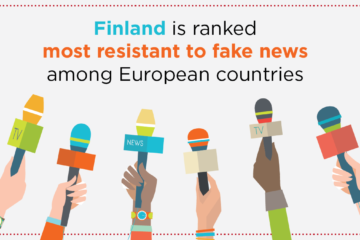Korea to Use AI-Powered Digital Texts in All Schools

Education Minister Lee Ju-ho announced recently that Korean schools will use digital textbooks enhanced with AI starting in 2025. Texts will be equipped with smart tutoring systems, metaverse capabilities, and conversational AI. Teachers will be able to collect information about students and tailor teaching to meet their needs and interests. The plan will start with math, English, and IT textbooks and will roll out over three years. The Ministry will designate 40 digital pilot schools and will start a pilot to develop teacher training to use the new text later this year.
Care Teams to Support Children in British Columbia Schools
British Columbia is investing in multidisciplinary care teams to better organize support for students in schools and to connect families to mental health, wellness, and substance abuse care their child may need. The Integrated Child and Youth (ICY) teams will serve 12 school districts, expanding to 20 by 2024. This is about one-third of school districts in the province. Team members may include clinical counselors, youth substance abuse counselors, child and youth mental health clinicians, Indigenous Elders or workers supporting Indigenous children and youth, and family and youth peer counselors. Rachna Singh, Minister of Education and Child Care, said that having the ICY teams “…work so closely with districts means that children, youth and families will have greater access to additional supports during the vulnerable years of their child’s life.” For more, see BC Government News.

New Zealand Funds Strategic Vocational Education Updates

New Zealand’s Tertiary Education Commission has awarded AUD$13 million (USD $8.7 million) to private training providers to update their vocational training content. The funds will go towards projects that better align training with national and regional skill priorities, and include developing new diploma options in areas such as cybersecurity and strengthening current programs by integrating mixed and augmented reality into apprenticeship courses. This is the latest initiative in New Zealand’s overhaul of their vocational education system. Read more about the government’s new vision for VET and about the new funding initiative.
New South Wales Incentivizes Teachers to Achieve Highly Accomplished Accreditation
In an effort to increase the number of highly accomplished or lead teachers (HALTs), public school teachers in New South Wales (NSW) who earn the accreditation will now be eligible for a one-time AUD$4,000 (USD$2,687) bonus. HALT teachers are expected to provide leadership in schools to improve the quality of teaching and learning, from organizing professional learning to sharing expertise with colleagues and early career teachers. The HALT specialist system started over a decade ago, but only a few hundred teachers have earned the certification, with many citing the application process as a barrier to entry. The process, which was simplified last year, requires teachers to attend workshops, analyze evidence of their own practice, and participate in a site visit where an external assessor evaluates the teachers’ practice. The NSW government aims to have 2,500 HALTs in schools within the next two years. Read more about the new incentive at the Sydney Morning Herald and read about the impact of HALTs at The Educator.





